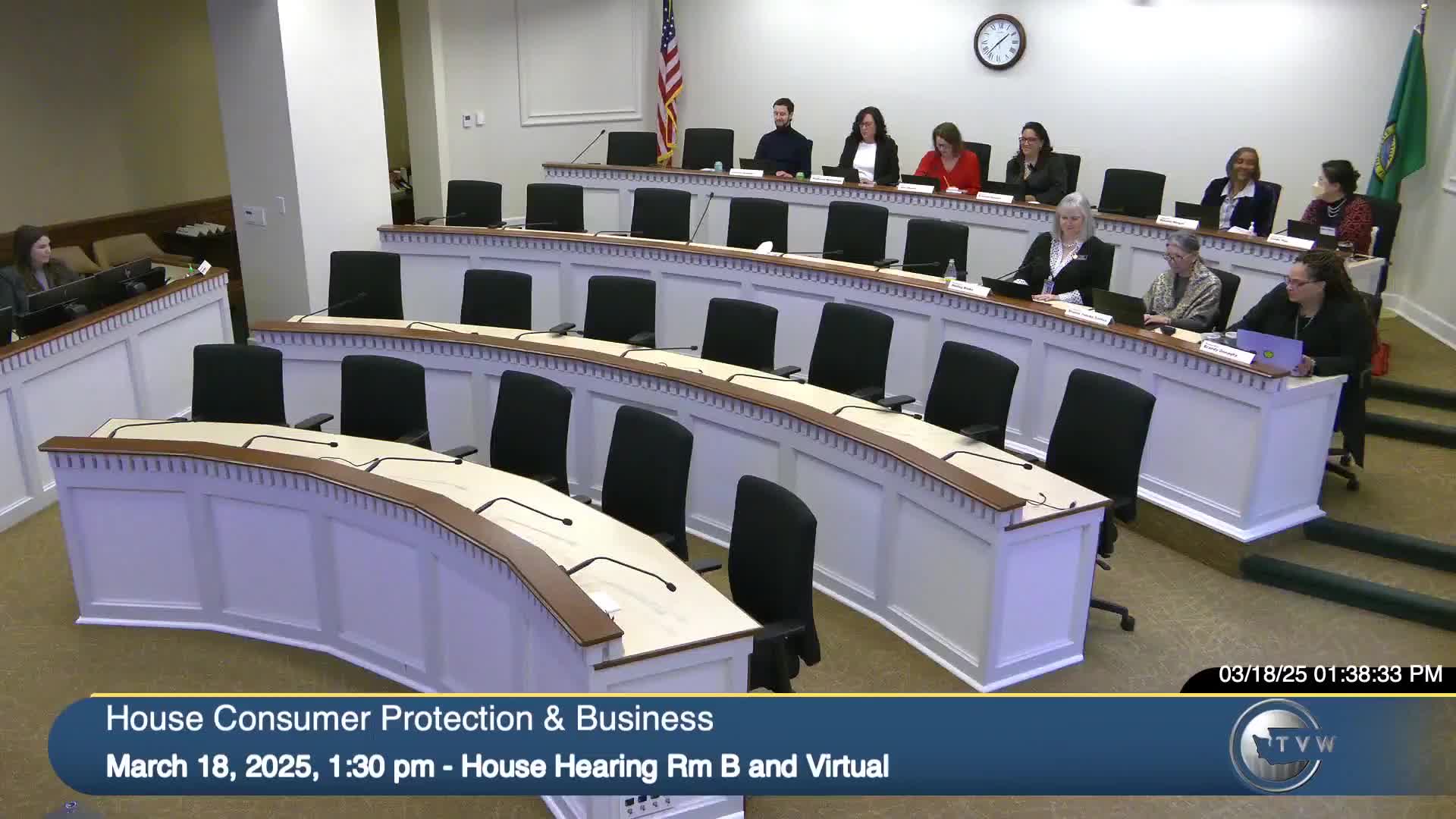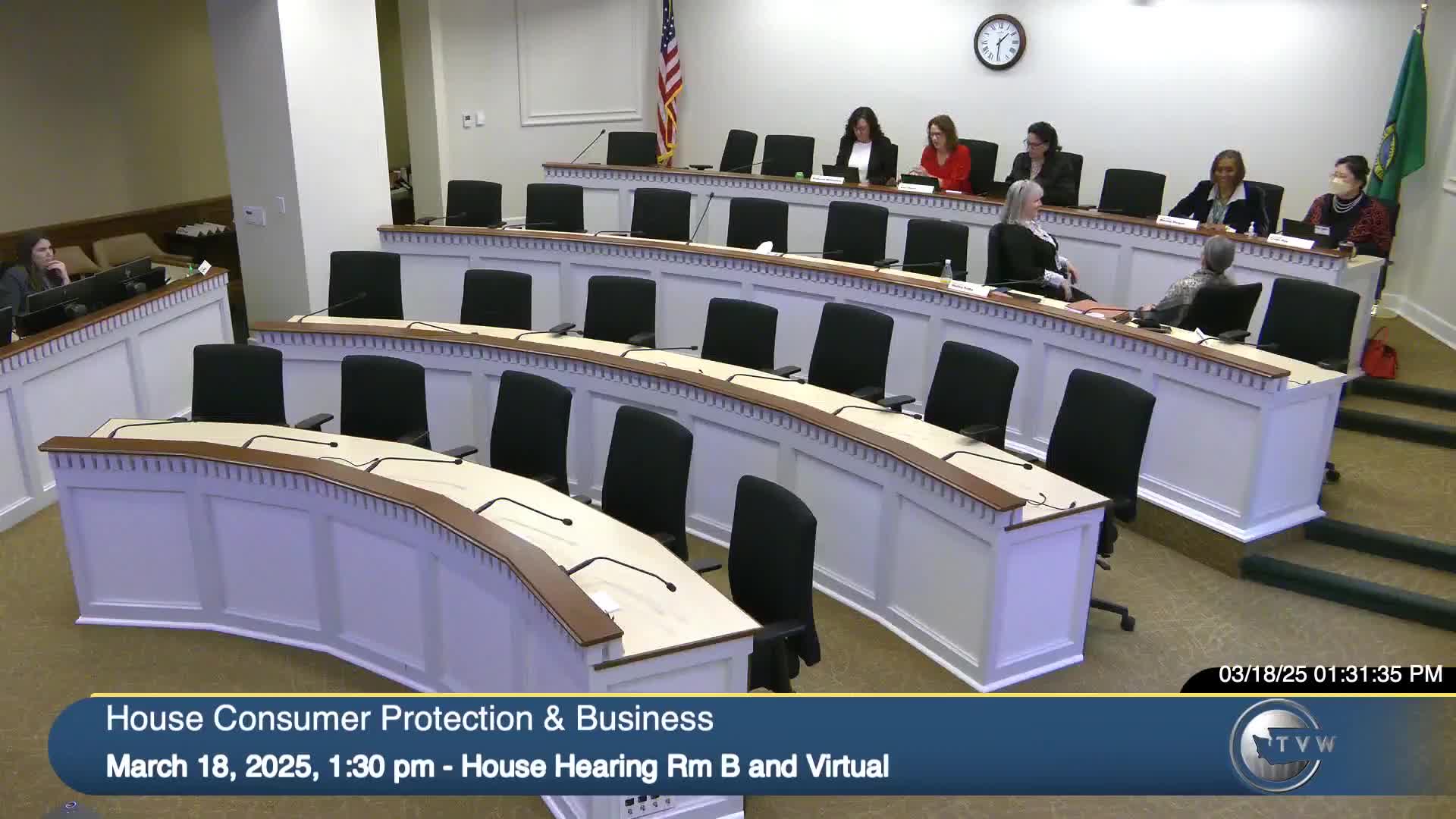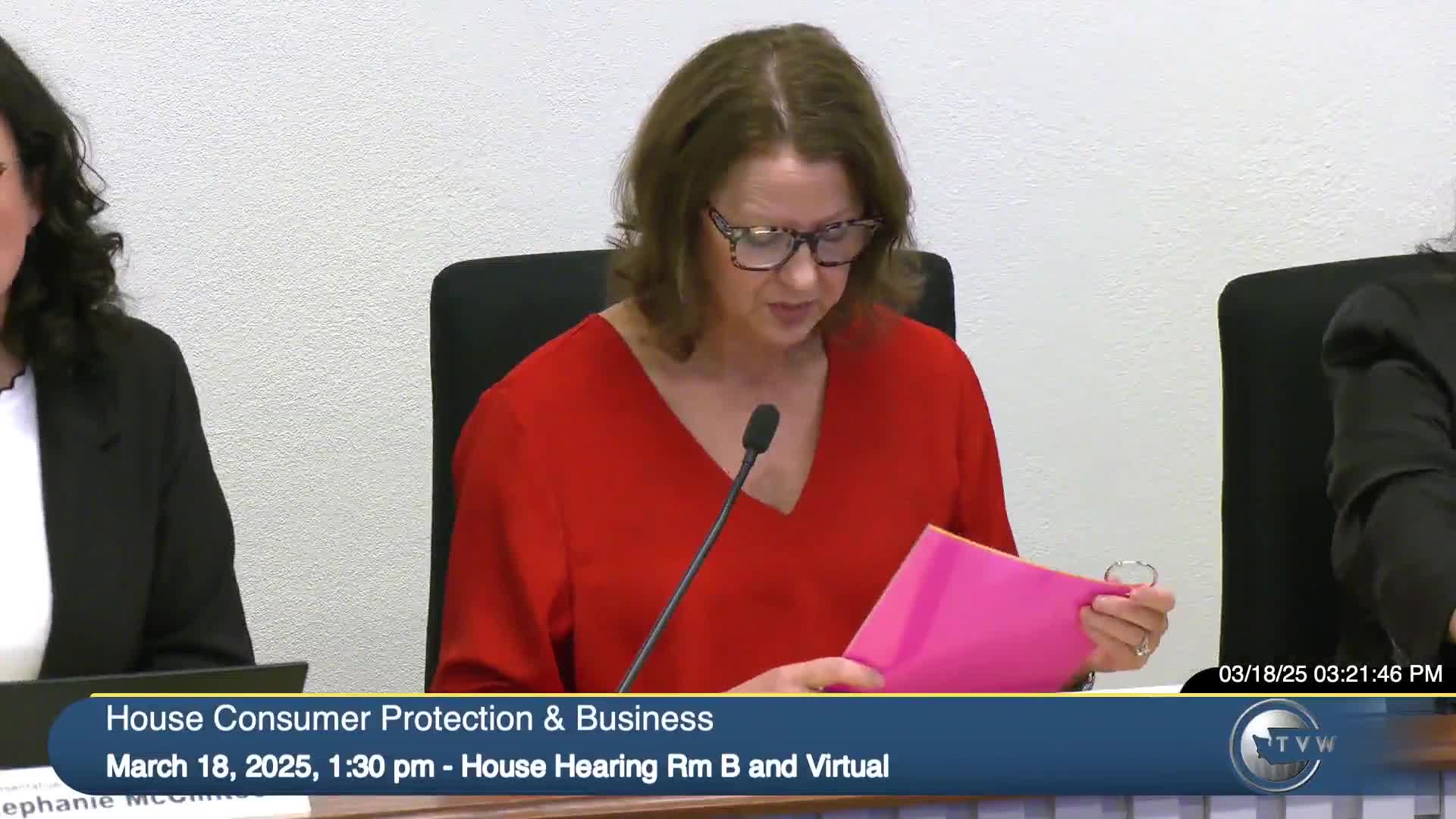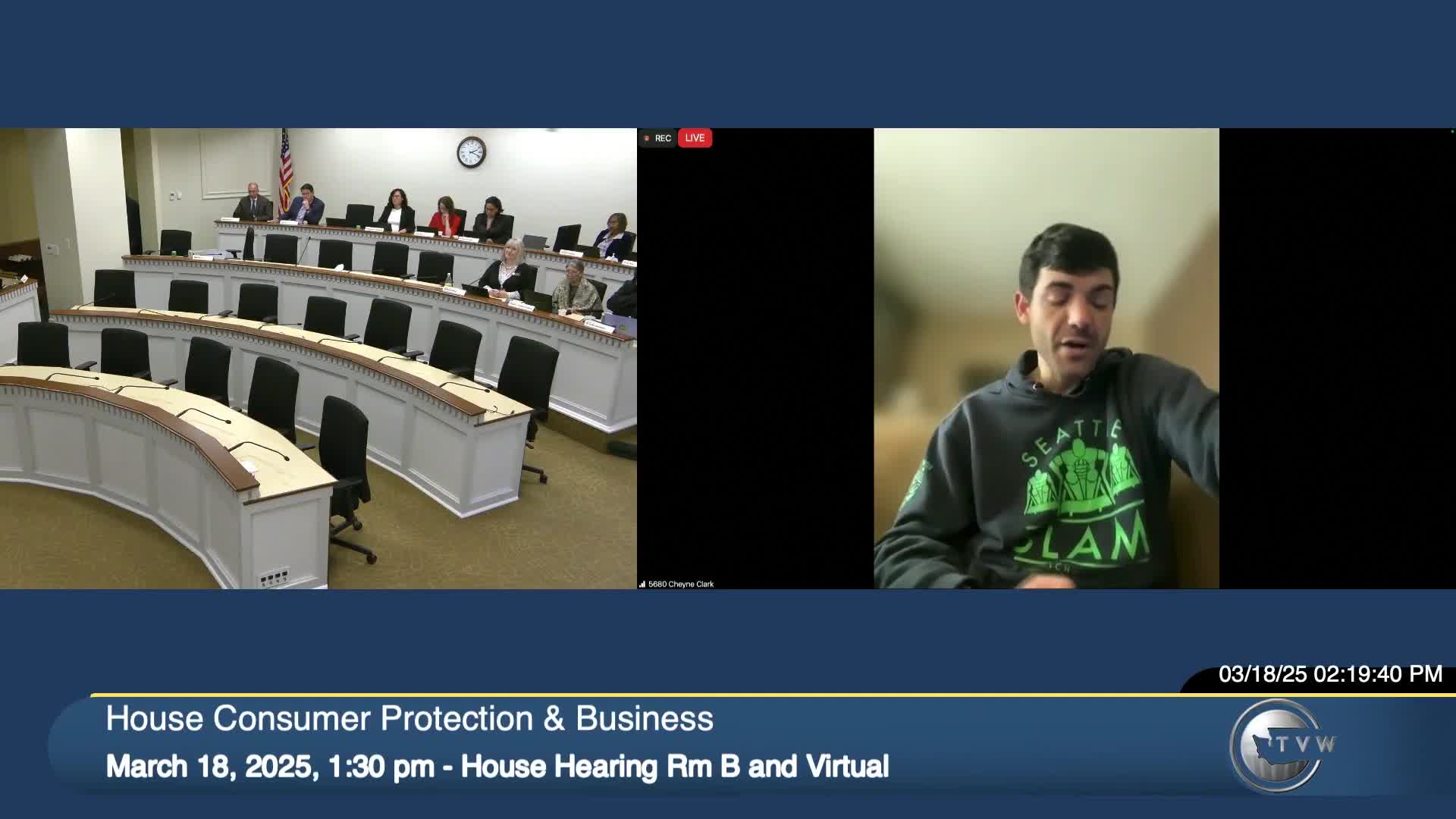Article not found
This article is no longer available. But don't worry—we've gathered other articles that discuss the same topic.

Committee Hears Bill to Bar Medical Debt from Credit Reports; Hospitals and Advocates Largely Support It

Committee Hears ‘Right to Repair’ Bill for Wheelchairs as Users, Providers Describe Long Delays

Committee Reports Two Consumer Protection Bills Out of Committee by Voice Vote

